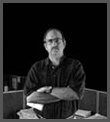The arrival of the Beatles. The Civil Rights Act. LBJ’s rout of Goldwater. All vied for “Biggest Story” of 1964. But another might have eclipsed them all: the Surgeon General’s report definitively linking smoking with cancer.
Why so big? Well, that year four of 10 American adults smoked. Yes, this cancer thing was big news.
Now here we are in 2015. You may believe that ISIS is the biggest story in the world, but face it: If most climate scientists are right, the biggest story is bigger than that, with sea-level change, the exhausting of life-giving glaciers — you know.
You may not believe all that, but it’s sort of like the smoking debate. Either we are harming ourselves, or . . .
It’s no big deal.
It is possible that the nations represented in Paris at the Global Climate Summit, all 190 of them, could be wrong along with just about every scientist who studies the climate full-time?
They could all be in it together, or so I’m told — a big-government cabal, a freedom-killing, one-world-government conspiracy. (Among those in the cabal, by the way, is the mayor of Aspen and representatives of the Colorado ski industry. They attended the Paris conference to share their alarm about slushy, mushy, abbreviated winters.)
Well, we can confirm the presence of a cabal, just not that one. The real cabal is described in the 2010 book and documentary, “Merchants of Doubt.” In it, authors Naomi Oreskes and Erik Conway detail two audacious campaigns:
The first was waged by the cigarette industry to inject doubt and disinformation into the inquiry regarding cigarettes’ health effects, to “create a debate.”
The second campaign is waged now by fossil-fuel industries to seed doubt in your mind about the human role in climate change.
In both cases, among industry foot soldiers have been scientists paid handsomely to lend their names to the cause. What would amaze most Americans is that, in many cases, they were the same scientists.
Big Tobacco’s doubt-seeding effort didn’t just involve scientists, though. It involved public relations giant Hill and Knowlton, for one. The PR firm advised that the only way to fight science was with science: “Scientific doubts must remain.”
This involved a ton of money — millions funneled for “biomedical research” through the Tobacco Industry Research Council. As Oreskes and Conway tell it, by the mid-1980s, the effort had hit the $100 million mark, exceeding “any other source except the federal government.”
Here we are today, and Big Tobacco seems like Tom Thumb compared to the interests of the oil, coal and other industries trying to deny, derail and redefine science.
This means having researchers and testifiers on retainer. See them hustling from climate conference to climate conference.
More pertinently, though, now industry has even pricier folks on retainer: politicians.
Hear the Republican presidential contenders on the climate issue and you can see them in a 1950s board room talking about how to get more of America’s youth to smoke Viceroys.
Even if smokes aren’t good for you, they can’t be bad for you, right? So goes the company line. The point here is that industry-beholden types need not have science on their side to say what they believe.
When a panel of scientists recently was asked to rate, without candidates’ names attached, statements from the presidential field, a climate scientist from Penn State said of Ted Cruz’s statements, “This individual understands less about science (and climate change) than the average kindergartner.”
This distinction, of course, Cruz will wear as a badge of honor to parade before the tea party faithful in Iowa.
Yes, it’s 190 nations concerned about the state of the planet, and one nation – Tea Party Nation – saying, “No big deal.”
Longtime newspaperman John Young lives in Colorado. Email: jyoungcolumn@gmail.com.


